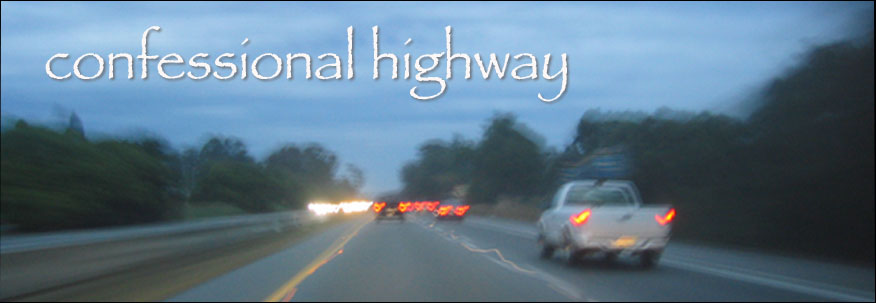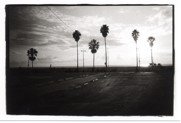It’s the image that always comes to me when I think of my relationship with my brother, the royal blue and white striped peashooter he gave me for my fourth birthday. It must have been his idea at age eleven. I don’t think my parents would have suggested arming a four-year-old.
He may not have thought it through, the fact that once armed I would request ammunition – unpopped popcorn kernels – and permission to follow him outside with his gang of friends. They’d shoot slyly at the moving cars that passed our house, raising peashooters to mouth at just the right moment, puff out their cheeks with requisite air, and blow, jettisoning a small morsel at their target, and then quickly hide their weapons by their sides. I’d stand focused on the parked car in front of me, roll a popcorn kernel around on my tongue to gather the right amount of spit to afford perfect trajectory – my brother must have taught me that – and then fire away awaiting the satisfying sound of the ping, of kernel hitting metal.
It’s the only gift I remember receiving before age nine when a snazzy three-speed Schwinn bike arrived, that’s how important that peashooter was to me, probably because it came from my older brother, the one I mimicked and followed around, stealing his T-shirts and any other clothing items of his I could wrap around me.
Through the years we grew apart, our relationship more courteous than connected, but lately things had shifted. We were on the mend, so it seemed. In his illness, challenged to speak, we resorted to emails, emails that bounced back and forth like live dialogue, emails that revealed our history, our one-time bond, our status as siblings. In his words he was warm and encouraging, inserted happy face emoticons and LOLs.
He spoke of his gratitude for his friends and family, what the caring of others in this time was teaching him. He spoke honestly about his mistakes and how he wanted to shift, of changes he wanted to make. “I have found that once I let others into my life things get easier all the way around,” he said. And I thanked him, told him he was gifting me with his openness, and that he was teaching me about learning to accept help.
I’m sorry he and I didn’t have more time to explore this renewed connection. I’m sorry he didn’t have more time to explore what he had discovered. Mostly I’m sorry for his young children because I know what their dad wanted more than anything was to have more time with them. If their mom doesn’t mind, maybe I’ll get them each a peashooter for their next birthday, and together we can fire off a popcorn kernel or two and try to make a ping and think of their dad.
4.21.2009
4.14.2009
In/Out

You come because you fear missing. The moment, the announcement, the invite, the laugh. The need to be in, be a part, belong. Like willingly slipping into handcuffs, you log on, log in, but with the sound of the bird caw you raise you eyes to the window, see the crow dodge and swerve, rattle in the palm fronds.
And then you know.
Time to go outside.
Outside, without devices.
Outside, untethered.
Outside, to catch the missing.
Like the accidental brush with a stranger, the person who passed that spot that one time, who dropped a card you would have retrieved and returned, who would have thanked you with a lingering look in your eye that moved past courtesy. You missed the cloud that blocked the sun just so to create colors and swirls like watercolors meeting in a rinsing bath. You missed sounds uniting in cacophony, unchoreographed bikers and skaters in dance, dots of sand skimming the beach in the wind.
But you never know, for no record remains, no evidence taunts you. And the indoor habit, mighty, forceful, demanding, unwilling to lose, mocks when you stay away, when you return, with etched proof of what was.
Balance. In/out.
There are the online connections, the people who enter your life through serendipity. There is the info, the images, the stories, the words, more and more and more until you drown in what you cannot absorb.
Whenever I leave, leave and fill the void with in real life, I find the me that goes missing in the information age. I find the me of greater confidence, who compares less, who competes less, whose breath grows deeper, whose legs grow sturdier. I find that which I do not know I look for.
Balance. In/out.
4.13.2009
Home and Away

It could be the jetlag, the confusing sleep pattern that allows me to drift off at a reasonable 10:30 p.m. only to awaken four hours later prepared to start a day that still sleeps. Or it could be the disorientation of returning to a life that demands planning beyond which sights I will see before noon, before the descent onto a nice lunch spot. The loss of life-in-the-moment slaps me hard as thoughts return to paychecks and tuition checks and career milestones and how to track down the undelivered post that was squeezed out of my mailbox during my two weeks away, the two weeks that my neighbor forgot to bring in my mail.
 I am not born to travel. I am born to not be stationary, to live outside a predictable existence, to be part of a community that changes with the turnover of hotel rooms. In a life outside expectations of consistency I do better, where it is the circumstances that prevent relationships from growing too deep as opposed to life where the relationships do not grow because the connection is just not there.
I am not born to travel. I am born to not be stationary, to live outside a predictable existence, to be part of a community that changes with the turnover of hotel rooms. In a life outside expectations of consistency I do better, where it is the circumstances that prevent relationships from growing too deep as opposed to life where the relationships do not grow because the connection is just not there.Happy.
That is what this awareness offers. When I stay off the internet, when I do not read of all that I cannot change – despite the proclamations that change resides in each one of our hands – I find peace. Selfish peace – or not – but peace nonetheless. When I walk instead of drive, when I read fictional tales rather than watch fictional tales. In these moments I connect with a quality that surpasses these simple actions.
The trip was to jumpstart the creative flow, to remind me of life outside the one offered in my day to day, to bond with a teen who may soon refuse to travel with me. Once I learned not to starve him in an effort to keep costs low (“What, fries and chocolate do not a lunch make?”), we found our rhythm. I hand over the guidebook and say, “Here, you plan Amsterdam,” and he does, and he leads and he chooses and his directionally-challenged brain learns to read a map.
 We return home with shared sadness to a world awash in English, to signs we read effortlessly as opposed to the signs we proudly deciphered in the foreign lands, the ease diminishing the achievement we savored each day as we traveled.
We return home with shared sadness to a world awash in English, to signs we read effortlessly as opposed to the signs we proudly deciphered in the foreign lands, the ease diminishing the achievement we savored each day as we traveled.We launder our limited two-week wardrobe of two pairs of pants each and a few shirts, and quickly re-adorn the same clothes, neglecting the closet full of options. Simple, I think. Fewer choices, more simplicity. I want to toss the clutter, remove the stacks of magazine back issues I will never read, create clear countertops and paperless drawers. I want less and less, yet do not know how to get to less.
But I will. I must. I must get to less. This is where my sanity resides. Spare. Sparse. Less.
And remembering. Remembering what brings out the best of each day, and recreating it here no matter the challenge, no matter the struggle.
Subscribe to:
Posts (Atom)

